- Lakeland Community College is a public institution of higher education dedicated to providing learning opportunities to the community it serves. The college strives to provide an environment for students which fosters the development of social, political, aesthetic, and moral values.
School Highlights
Lakeland Community College serves 6,801 students (30% of students are full-time).
The college's student:teacher ratio of 13:1 is lower than the state community college average of 23:1.
Minority enrollment is 31% of the student body (majority Black), which is less than the state average of 38%.
Quick Stats (2025)
- Enrollment: 6,801 students
- In-state tuition: $4,165
- Out-state tuition: $9,205
- Student:teacher ratio: 13:1
- Minority enrollment: 31%
- Source: Integrated Postsecondary Education Data System (IPEDS)
Top Rankings
Lakeland Community College ranks among the top 20% of public schools in Ohio for:
Category
Attribute
Community Size
School Overview
The teacher population of 519 teachers has stayed relatively flat over five years.
Lakeland Community College
(OH) Community College Avg.
Carnegie Classification
Associate's Colleges: High Transfer-Mixed Traditional/Nontraditional
Baccalaureate/Associate's Colleges: Mixed Baccalaureate/Associate's
Institution Level
At least 2 but less than 4 years
At least 2 but less than 4 years
Institution Control
Public
Private not-for-profit
Total Faculty
519 staff
93 staff
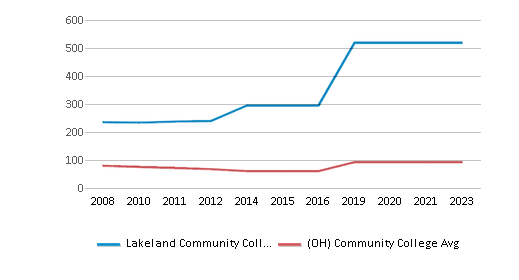
School Calendar
Student Body
The student population of Lakeland Community College has stayed relatively flat over five years.
The student:teacher ratio of 13:1 has increased from 10:1 over five years.
The Lakeland Community College diversity score of 0.51 is less than the state average of 0.58. The school's diversity has grown by 21% over five years.
Total Enrollment
6,801 students
533 students
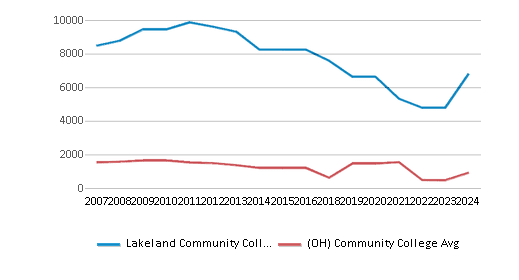
Student : Teacher Ratio
13:1
23:1
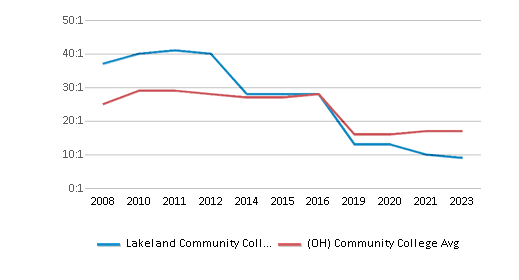
# Full-Time Students
2,050 students
397 students
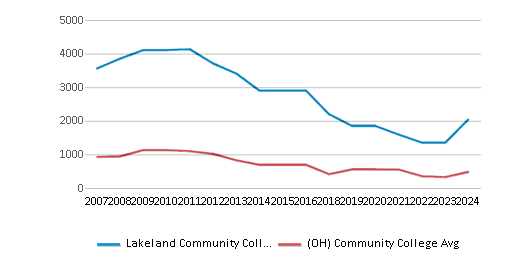
# Part-Time Students
4,751 students
360 students
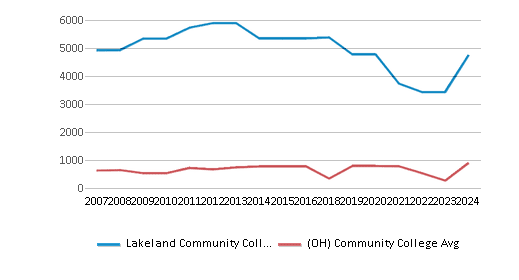
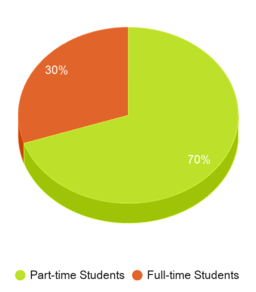
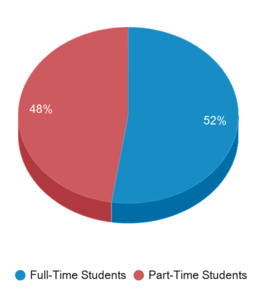
# Enrollment Undergraduate
680 students
308 students
# Full-Time Undergraduate Students
2,050 students
385 students
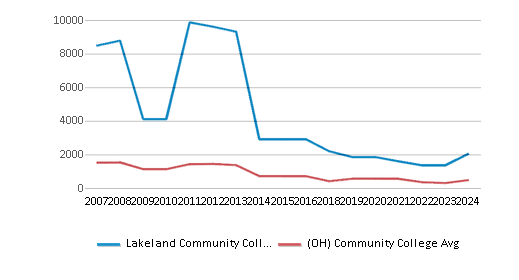
# Full-Time Graduate Students
n/a
10 students
# Part-Time Undergraduate Students
4,751 students
380 students
# Part-Time Graduate Students
n/a
3 students
Total Dormitory Capacity
n/a
425 students
% American Indian/Alaskan
n/a
n/a
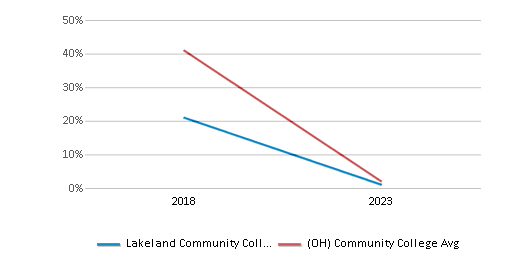
% Asian
2%
4%
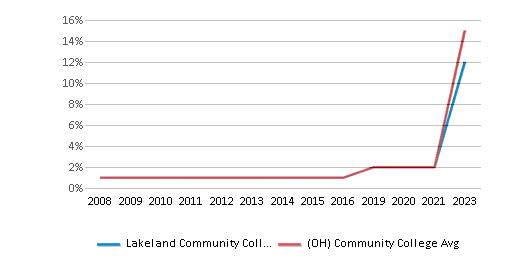
% Hispanic
5%
6%
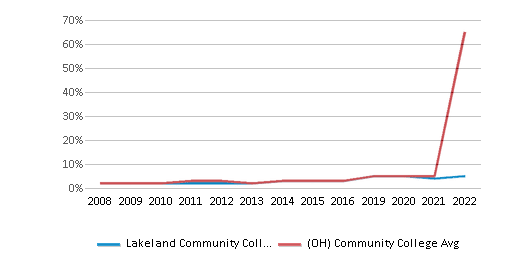
% Black
12%
15%
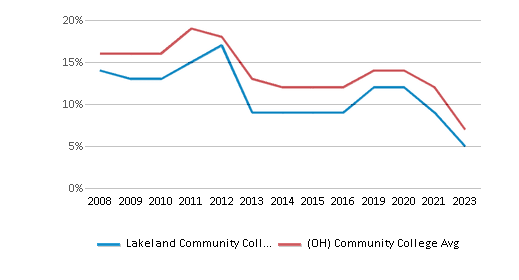
% White
69%
62%
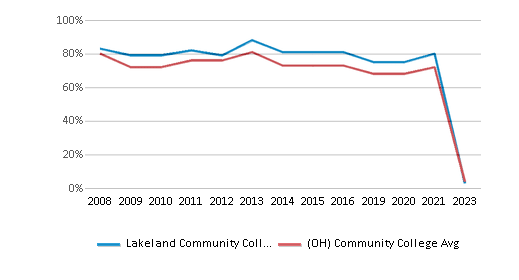
% Hawaiian
n/a
2%
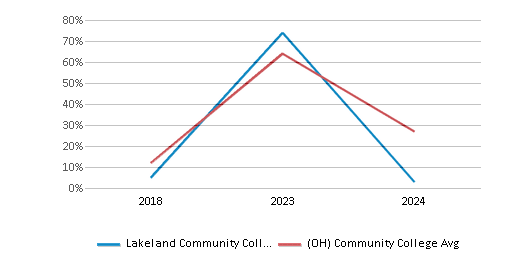
% Two or more races
4%
4%
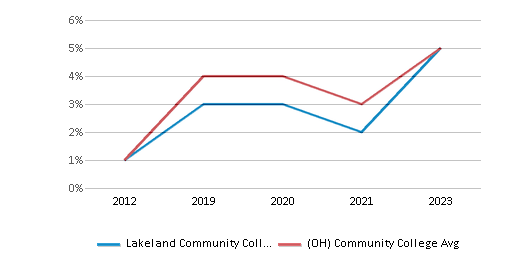
% Non Resident races
n/a
1%
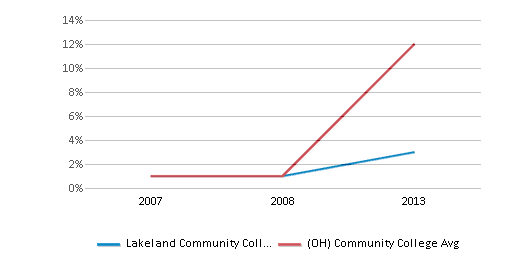
% Unknown races
7%
6%
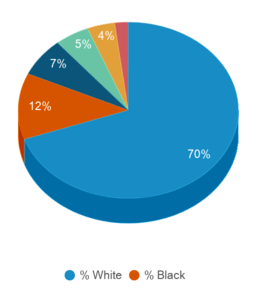
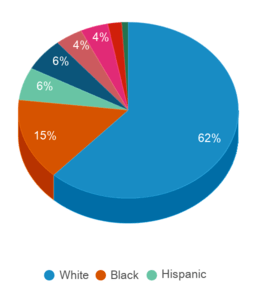
Diversity Score
0.51
0.58
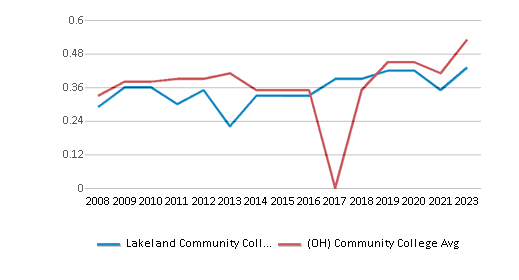
College Completion Rate (Students who graduate in less than 4 years)
0.1632%
0.5417%
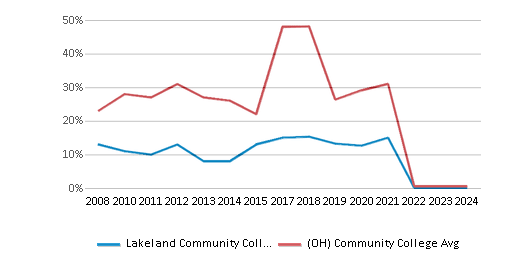
College Completion Rate (Students who graduate in 4 years or more than 4 years)
n/a
0.2197%
Average Graduate Earnings (10 Years)
$35,600
$31,900
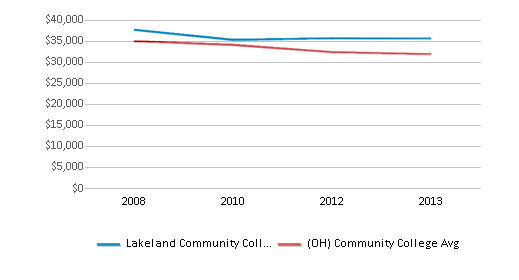
Tuition and Acceptance Rate
The public in-state tuition of $4,165 is less than the state average of $5,023. The in-state tuition has stayed relatively flat over four years.
The public out-state tuition of $9,205 is less than the state average of $10,825. The out-state tuition has stayed relatively flat over four years.
In-State Tuition Fees
$4,165
$5,023
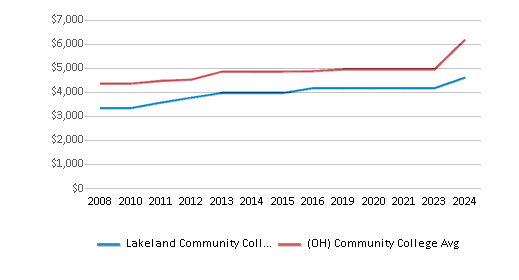
Out-State Tuition Fees
$9,205
$10,825
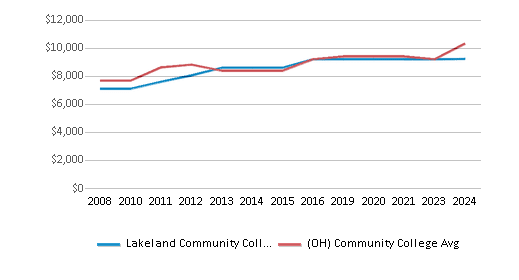
% Students Receiving Some Financial Aid
55%
88%
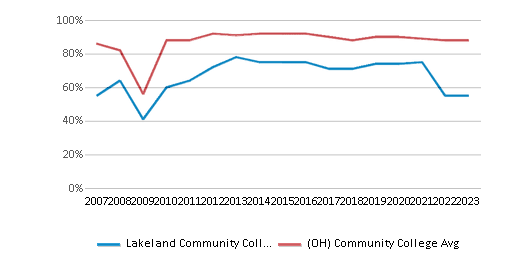
Median Debt for Graduates
$15,686
$18,500
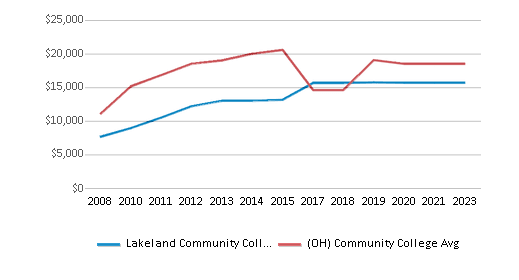
Median Debt for Dropouts
$6,003
$6,500
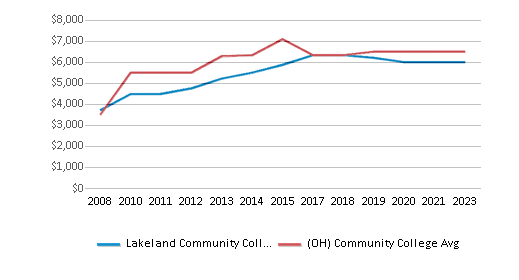
Acceptance Rate
n/a
73%
SAT Reading
n/a
460
SAT Math
n/a
475
SAT Writing
n/a
465
ACT Composite
n/a
21
ACT English
n/a
20
ACT Math
n/a
20
Source: 2024 (or latest year available) Integrated Postsecondary Education Data System (IPEDS)
School Notes
- Founded in 1967, Lakeland was the first college in Ohio founded by a vote of the people. As a community college, making higher education accessible is a priority. The college continues to develop programs and classes to meet the needs of students, employers and the community. The main campus is on a 400-acre wooded site in Kirtland, only 30 minutes from downtown Cleveland. Eight connected buildings house classrooms, state-of-the-art computer and technology labs, student center and dining hall, bookstore, library, offices and services. The Athletic and Fitness Center, plus outdoor athletic fields, tennis courts and a fitness trail are located on campus. Mooreland, a business and education conference center is also located on the Lakeland campus. Off-site campuses at Lakeland East in Madison, Victoria Place in Painesville, and Shoregate in Willowick offer students the opportunity to take classes even closer to home. Lakeland Community College offers numerous programs of instruction and community services to fulfill its stated goals and objectives. The transfer programs emphasize the arts and sciences (the first two years of a traditional four-year college or university curriculum); the technical programs prepare students for employment at paraprofessional levels; and the community service programs strive to meet the needs of the college's service district through educationally related cultural and personal enrichment offerings. The associate of arts (AA) is normally pursued by students intending to transfer to a senior institution for the completion of a bachelor of arts or science degree. Typical areas of study may include: art, business, economics, education, English, geography, history, journalism, modern languages, music, philosophy, photography, political science, prelaw, psychology, sociology, social work, and speech. The North Central Association of Colleges and Secondary Schools grants accreditation to Lakeland Community College. The college is a member of the Ohio College Association and the National Commission on Accrediting.
Frequently Asked Questions
How much does Lakeland Community College cost?
Lakeland Community College's tuition is approximately $4,165 for In-State students and $9,205 for Out-State students.
What schools are Lakeland Community College often compared to?
Lakeland Community Collegeis often viewed alongside schools like Cuyahoga Community College District by visitors of our site.
What is Lakeland Community College's ranking?
Lakeland Community College ranks among the top 20% of community college in Ohio for: Largest student body.
Recent Articles

Obtaining Your Bachelor's Degree at a Community College
Explore the evolving landscape of community colleges offering bachelor's degrees, addressing affordability, accessibility, and workforce needs.

A to Z of Community College Certificates and Courses
From business and healthcare to technology and skilled trades, the article showcases the breadth of options available to students seeking to enhance their knowledge, develop new skills, or pursue career advancement.

What is a Community College?
This comprehensive guide explains what a community college is, its history, and its role in higher education. It covers the types of programs offered, differences from four-year colleges, benefits of attending, and important considerations for prospective students, providing valuable insights for those exploring educational options.









